Filter by
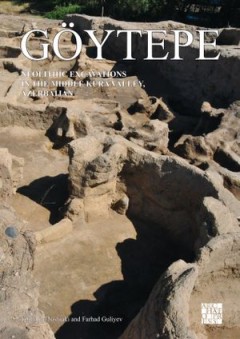
Göytepe : Neolithic Excavations in the Middle Kura Valley, Azerbaijan
Göytepe: Neolithic Excavations in the Middle Kura Valley, Azerbaijan, publishes the first round of fieldwork and research (2008-2013) at this key site for understanding the emergence and development of food-producing communities in the South Caucasus. Situated close to the Fertile Crescent of Southwest Asia, where Neolithisation processes occurred earlier, research in the South Caucasus raises…
- Edition
- -
- ISBN/ISSN
- 978-1-78969-879-4
- Collation
- -
- Series Title
- -
- Call Number
- 930.1 GOY
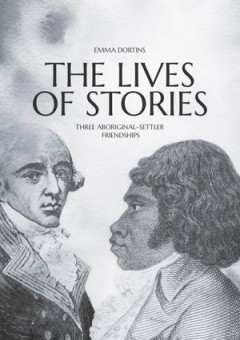
The Lives of Stories: Three Aboriginal-Settler Friendships
The Lives of Stories traces three stories of Aboriginal–settler friendships that intersect with the ways in which Australians remember founding national stories, build narratives for cultural revival, and work on reconciliation and self-determination. These three stories, which are still being told with creativity and commitment by storytellers today, are the story of James Morrill’s adopti…
- Edition
- -
- ISBN/ISSN
- 9781760462406
- Collation
- -
- Series Title
- -
- Call Number
- 994 DOR l
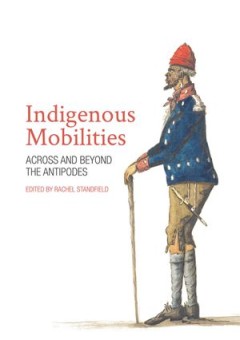
Indigenous Mobilities: Across and Beyond the Antipodes
This edited collection focuses on Aboriginal and Māori travel in colonial contexts. Authors in this collection examine the ways that Indigenous people moved and their motivations for doing so. Chapters consider the cultural aspects of travel for Indigenous communities on both sides of the Tasman. Contributors examine Indigenous purposes for mobility, including for community and individual econ…
- Edition
- -
- ISBN/ISSN
- 9781760462147
- Collation
- -
- Series Title
- -
- Call Number
- 911 IND i

The Assassination of Jacques Lemaigre Dubreuil
This is a political biography of the French industrialist and political activist Jacques Lemaigre Dubreuil (1894-1955), president of the Taxpayers' Federation in the 1930s, entrepreneur in wartime France and Africa, organizer of the 'Group of Five' in Algiers which prepared for the Allied landings in North Africa (November 1942), 'inventor' of General Henri Giraud as a candidate for the leaders…
- Edition
- -
- ISBN/ISSN
- 9780203004968
- Collation
- -
- Series Title
- -
- Call Number
- 960 HOI a
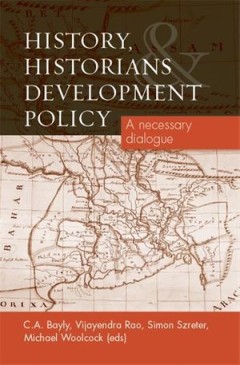
History, historians and development policy : A necessary dialogue
The substantive and methodological contributions of professional historians to development policy debates was marginal, whether because of the dominance of economists or the inability of historians to contribute. There are broadly three ways in which history matters for development policy. These include insistence on the methodological principles of respect for context, process and difference; …
- Edition
- -
- ISBN/ISSN
- 978 07190 8577 2
- Collation
- -
- Series Title
- -
- Call Number
- 900 HIS
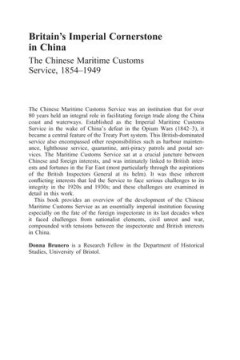
Britain's Imperial Cornerstone in China
This is an in-depth account of the Chinese Imperial Maritime Customs Service, a uniquely cosmopolitan institution established in the wake of China's defeat in the Opium Wars (1842 to 43), and a central feature of the Treaty Port system. The British-dominated service was headed by the famous Robert Hart who founded a far-reaching customs administration that also encompassed other responsibilitie…
- Edition
- -
- ISBN/ISSN
- 9780203315125
- Collation
- -
- Series Title
- -
- Call Number
- 951 BRU b
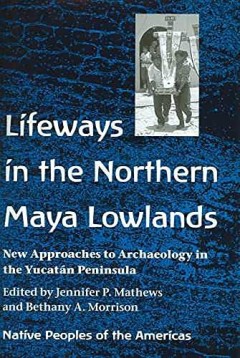
Lifeways in the Northern Maya Lowlands : New Approaches to Archaeology in the…
By exploring various social and political levels of Maya society through a broad expanse of time, Lifeways in the Northern Maya Lowlands not only reconstructs a little-known past, it also suggests the broad implications of archaeology for related studies of tourism, household economies, and ethnoarchaeology. It is a benchmark work that pointedly demonstrates the need for researchers in both nor…
- Edition
- -
- ISBN/ISSN
- 978-0-8165-4895-1
- Collation
- -
- Series Title
- Native people of the Americas
- Call Number
- 972.65 LIF
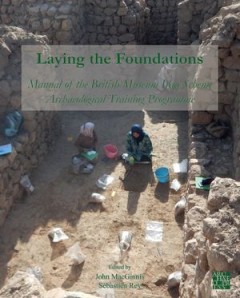
Laying the Foundations : Manual of the British Museum Iraq Scheme Archaeolog…
Laying the Foundations, which developed out of the British Museum’s ‘Iraq Scheme’ archaeological training programme, covers the core components for putting together and running an archaeological field programme. The focus is on practicality. Individual chapters address background research, the use of remote sensing, approaches to surface collection, excavation methodologies, survey with t…
- Edition
- -
- ISBN/ISSN
- 978-1-80327-141-5
- Collation
- -
- Series Title
- -
- Call Number
- 930.1 LAY

Pastplay : Teaching and Learning History with Technology
In the field of history, the Web and other technologies have become important tools in research and teaching of the past. Yet the use of these tools is limited—many historians and history educators have resisted adopting them because they fail to see how digital tools supplement and even improve upon conventional tools (such as books). In Pastplay, a collection of essays by leading history an…
- Edition
- -
- ISBN/ISSN
- 9780472900237
- Collation
- 376 halaman
- Series Title
- -
- Call Number
- 900 PAS
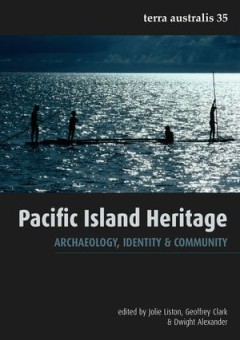
Pacific Island Heritage: Archaeology, Identity & Community
This volume emerges from a ground-breaking conference held in the Republic of Palau on cultural heritage in the Pacific. It includes bold investigations of the role of cultural heritage in identity-making, and the ways in which community engagement informs heritage management practices. This is the first broad and detailed investigation of the unique and irreplaceable cultural heritage of the P…
- Edition
- -
- ISBN/ISSN
- 9781921862489
- Collation
- -
- Series Title
- -
- Call Number
- 930.1 PAC p
 Computer Science, Information & General Works
Computer Science, Information & General Works  Philosophy & Psychology
Philosophy & Psychology  Religion
Religion  Social Sciences
Social Sciences  Language
Language  Pure Science
Pure Science  Applied Sciences
Applied Sciences  Art & Recreation
Art & Recreation  Literature
Literature  History & Geography
History & Geography